Ghanaians will throng to the polls on December 7, 2024, to elect a new leader and lawmakers. The West African nation conducts its presidential and parliamentary elections every four years, adhering to a detailed timetable outlined in its 1992 Constitution. Although it is not a constitutional requirement, since the landmark elections of December 1996, both presidential and parliamentary elections have been held on the same day.
Citizens at least 18 have the right to register to vote. With a population estimated at around 35 million in 2024, almost 20 million individuals are registered to participate in the upcoming elections scheduled for December 7.
Ghana has a history of robust voter engagement, demonstrated by a remarkable turnout of 79% in the December 2020 general elections. The nation is divided into 276 single-member constituencies for the 2024 elections; each carefully subdivided into various polling stations where citizens will vote in person on election day. Voting will occur nationwide at over 40,000 polling stations, including 328 specialised voting centres designed to accommodate specific voting needs.
Members of Parliament are elected using a first-past-the-post voting system, which means that in each constituency, the candidate with the highest number of votes wins the seat. However, a candidate must achieve most of the valid votes to secure victory in the presidential election. If no presidential candidate obtains this majority in the initial round of voting, a run-off election must be conducted between the two candidates who garnered the most votes.
This decisive second round occurs within twenty-one days of the first election, ensuring that the country’s leadership is determined swiftly and fairly.
Who’s Jostling for the Jubilee House Job?
Ghana’s electoral umpire, the Electoral Commission (EC) is tasked with conducting and managing the electoral process. This independent body, established under the constitution, operates free from any person or authority’s control or direction, ensuring its functions are carried out with integrity and impartiality.
It is headed by a chairperson, along with two deputy commissioners who collectively form the executive body of the commission, all appointed by the President, and they serve until they reach a mandatory retirement age, which aligns with that of the country’s senior judges.
Importantly, the President can remove the chairperson and deputy commissioners only for specified reasons, and this process follows a quasi-judicial ‘impeachment’ procedure. This process is initiated by a petition to the President and is overseen by the chief justice, safeguarding the independence of the electoral management body.
Currently, 12 candidates have been approved by the EC to compete in the presidential, including eight party candidates and four independents. However, it is, again, expected to be a two-horse contest, primarily between the ruling New Patriotic Party (NPP) candidates and the main opposition National Democratic Congress (NDC).
In contrast to the presidential election, the NPP and NDC are the only parties fielding candidates in all 276 constituencies, reflecting the competitive dynamics of the political environment as both parties seek to solidify their positions in the legislative arena.
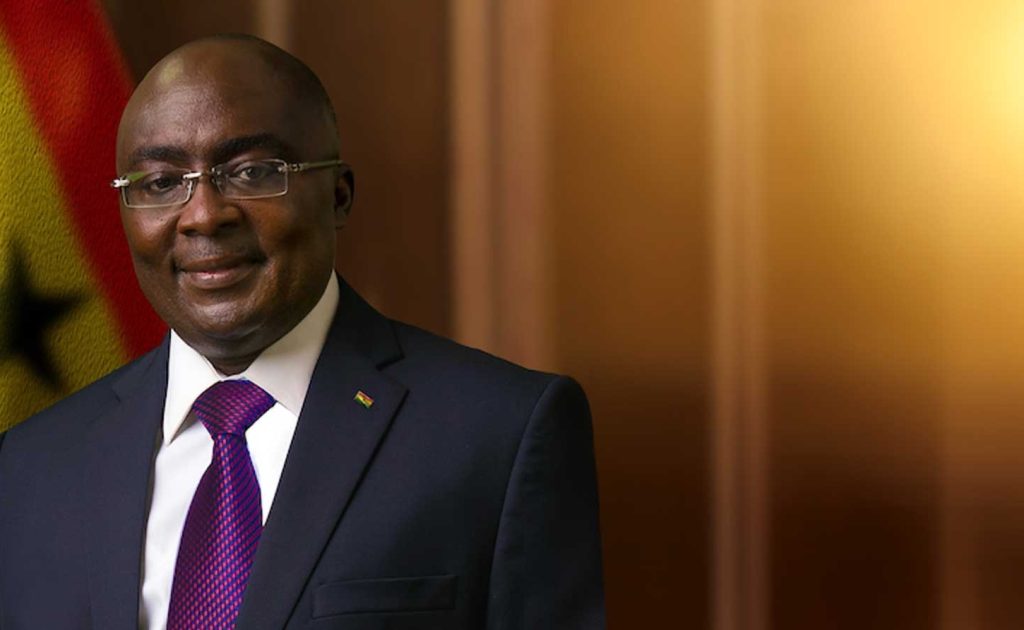
MAHAMUDU BAWUMIA
Age: 61
Party: New Patriotic Party (NPP)
Vice President of Ghana
Mahamudu Bawumia currently serves as the Vice President of Ghana and is the ruling New Patriotic Party (NPP) presidential candidate.
A distinguished economist and former deputy head of the country’s Central Bank, Bawumia has played a pivotal role in shaping Ghana’s economic policies, particularly during the nation’s recent challenging periods under President Nana Akufo-Addo’s administration.
Bawumia entered the political arena as a relative unknown when President Akufo-Addo selected him as his running mate for the NPP in the 2008 presidential elections. Despite facing setbacks in the 2008 and 2012 elections, where the NPP was defeated by the National Democratic Congress (NDC), Bawumia and Akufo-Addo made a remarkable comeback, winning the elections in 2016 and successfully securing reelection in 2020.
The vice president is the first Muslim to lead a major political party in Ghana since the advent of multi-party democracy in 1992. He is also the first individual outside the predominant Akan-speaking ethnic group to take the helm of the NPP, marking a significant milestone in the party’s history.
After a contentious primary, Bawumia emerged as the NPP’s candidate for the 2024 presidential elections after a bitter party primary. The process was marked by major divisions, culminating in the resignation of one of the leading contenders, former Trade Minister Alan Kyerematen, who subsequently announced an independent bid for the presidency.
He is renowned for his keen economic insight. He has publicly committed to implementing broad reforms, including streamlining Ghana’s tax system, drastically reducing government spending, and cutting the number of ministers in half if elected.
Running Mate
For his running mate, Bawumia has selected Dr. Matthew Opoku Prempeh, 56, a seasoned politician with extensive experience in government. Before being nominated as vice presidential candidate, Prempeh served as the Minister of Energy under Akufo-Addo and previously held the position of Minister of Education. He represents a stronghold of the NPP as a member of parliament from Kumasi, the party’s traditional base. His background as a Christian and an Asante (Akan) from a prominent NPP political family adds a crucial layer of ethnic, regional, and religious representation to the ticket. This balance is particularly significant in Ghana, where most of the population identifies as Christian (71%), and many belong to the Akan ethnic group (46%).
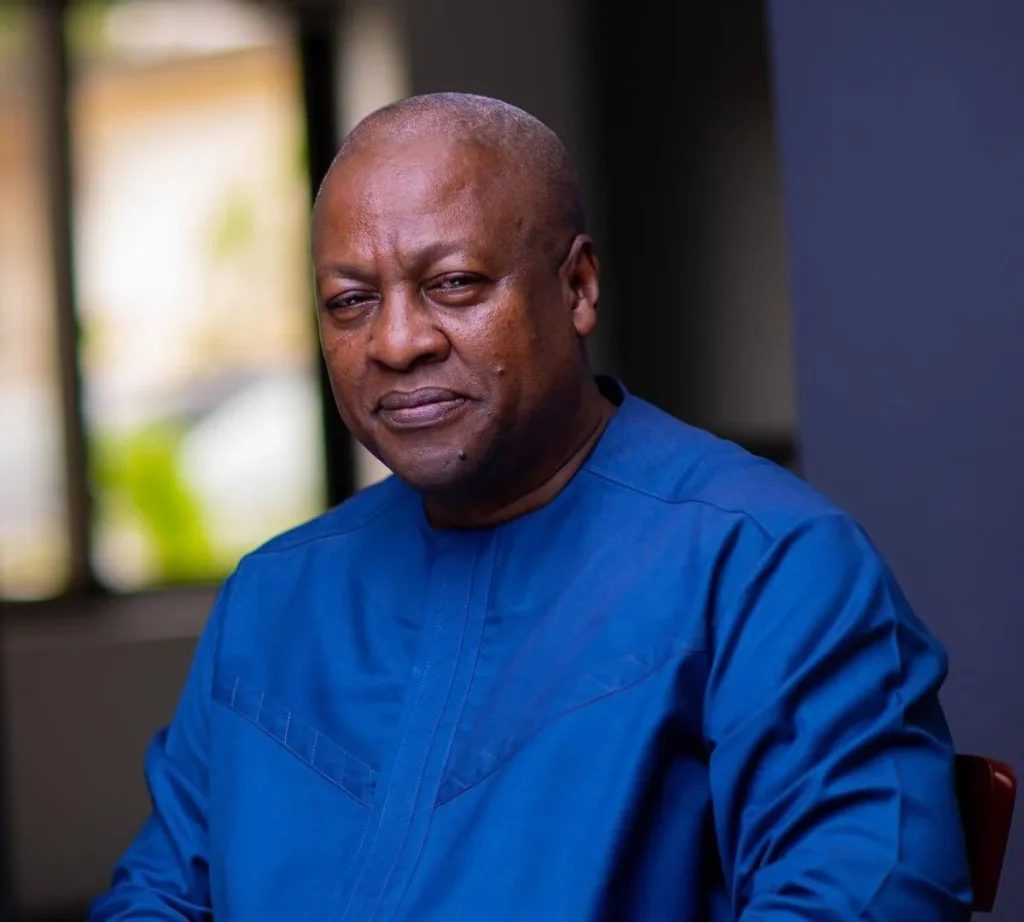
JOHN DRAMANI MAHAMA
Age: 66
Party: National Democratic Congress (NDC)
Former President of Ghana
John Dramani Mahama is a prominent figure in Ghana’s political landscape, widely recognised as a seasoned politician and the nation’s former President. As a representative of the opposition National Democratic Congress (NDC), he is considered a formidable candidate for the presidency in the upcoming election, particularly in light of the current government’s dwindling popularity amid a pressing economic crisis that has affected many Ghanaians.
Mahama’s political journey began to rise when he assumed the role of interim president in 2012 following the unexpected passing of President John Atta Mills. He quickly proved his mettle in governance by winning the subsequent presidential election later that same year, an indicator to his appeal and leadership qualities. During his presidency, Mahama prioritised infrastructure development, channelling significant investments into expanding road networks, constructing housing, and enhancing energy resources. However, his administration was not without its challenges; he faced mounting criticism for persistent power outages that plagued the nation, economic instability that left many citizens struggling, and rumours of political corruption, although Mahama was never personally implicated in any wrongdoing.
In the 2016 elections, Mahama lost his bid for re-election to his rival, Akufo-Addo. This defeat marked a historic moment as he became the first Ghanaian president to lose after serving just one term in office. His political journey faced another hurdle in 2020 when he again lost to the incumbent president, prompting discussions about the future direction of his political career.
Should Mahama successfully reclaim his position, he has vowed to renegotiate the terms of Ghana’s $3 billion bailout from the International Monetary Fund, which was arranged in 2023 as part of efforts to restructure the nation’s crippling debt.
Running Mate
In a strategic move to bolster his campaign, Mahama has again selected the esteemed retired academic and former Minister for Education, Professor Jane Naana Opoku-Agyemang, as his running mate. At 72 years old, Opoku-Agyemang brings a wealth of experience and knowledge to the ticket. Their partnership aims to unify the NDC and reflects a commitment to gender and ethnic-regional balance, as Opoku-Agyemang hails from the coastal Akan Fante region. This all-Christian ticket aspires to resonate with a diverse electorate while addressing the country’s pressing issues.
While the presidential race is expected to narrow down to the two major candidates, John Mahama of the National Democratic Congress (NDC) and Vice President Mahamudu Bawumia of the New Patriotic Party (NPP), however, the dynamics may be complicated by the presence of at least two other candidates on the sprawling 12-person ballot who could play crucial roles in this year’s electoral proceedings.
One noteworthy contender is Alan Kyerematen, a former NPP member who has opted for an independent candidacy. His decision to break away from the party is significant, especially considering his strong ties to Kumasi, an electoral stronghold for the NPP.
Kyerematen enjoys a dedicated following in this region, primarily former NPP supporters disillusioned with the party’s current direction. His candidacy poses a strategic challenge for the NPP, potentially undermining their efforts to maintain their historically dominant position in Kumasi.
Another candidate drawing attention is Nana Kwame Bediako, a 44-year-old real estate mogul positioning himself as a fresh voice for a new generation of voters. Bediako’s campaign aims to capture the interest of discontented urban youth, offering an eclectic mix of hope, prosperity, and a vision of a pan-African renaissance.
While neither Kyerematen nor Bediako is likely to significantly disrupt the entrenched duopoly of the NPP and NDC, their independent campaigns could collectively influence the electoral landscape. This is especially true amid a growing disenchantment among young voters with the traditional party systems, increasing the likelihood of a second round of voting if their candidacies draw sufficient support.
Kyerematen and Bediako have embraced their independent status to connect with voters who are dissatisfied with the existing political parties. Being part of the Twi-Akan ethnic group, it is anticipated that their voter appeal could primarily siphon support from the NPP, potentially reshaping the election outcomes.
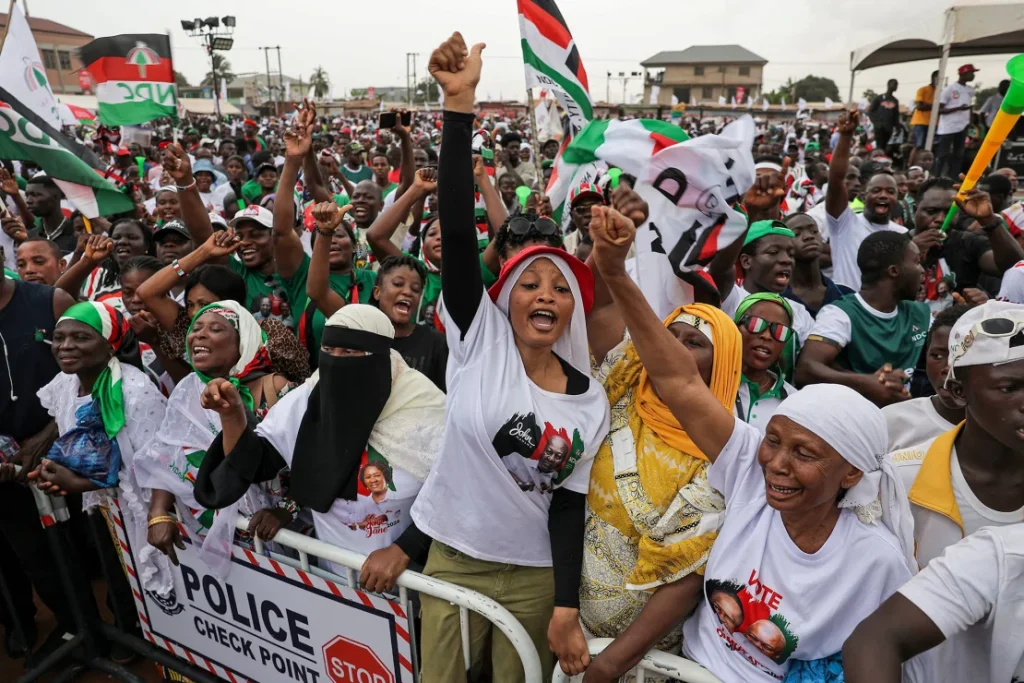
Compounding the political atmosphere is the increasingly sardonic tone of the campaigns waged by the NPP and NDC. A deepening partisan divide concerning the integrity of critical electoral institutions, such as the Electoral Commission (EC) and the judiciary, has sparked fears of heightened turmoil during the December elections. Recent experiences of violence and disruption during Ghana’s elections amplify these concerns.
The NDC’s alarming announcement that it would boycott the courts if the elections do not go in its favour—citing perceived partisan bias from the Supreme Court and the EC—has only escalated tensions. Meanwhile, assertive statements from NPP leaders suggesting they have no intention of relinquishing power to their political rivals have added to a charged electoral environment, raising doubts about the credibility and fairness of the electoral process ahead.
The Economy is the Battle Cry
The state of the economy is the core issue dominating the elections as Ghana currently finds itself amidst an unprecedented economic crisis, arguably the most severe since the country transitioned back to democratic governance.
This situation was exacerbated in 2022 when Ghana made history by defaulting on its USD 30 billion sovereign debt for the first time, plunging the economy into disarray. Following the default, inflation soared to over 50%, and the Ghanaian cedi experienced a dramatic decline in value against the U.S. dollar.
Faced with mounting pressure and a collapsing economy, the government, which had previously vowed not to seek assistance from the International Monetary Fund (IMF), implemented a policy somersault and entered into negotiations for a USD 3 billion bailout. The IMF’s terms included a debt restructuring move that imposed an unprecedented ‘haircut’ on local bondholders, inflaming public sentiments and leading to protests among pensioners affected by the government’s decisions.
The World Bank said that approximately 850,000 Ghanaians might have fallen into poverty in 2022 due to the increasing costs of goods and services, joining the six million people who were already experiencing poverty.
Although inflation figures have since slowed to just above 20%, living costs remain a critical challenge for many Ghanaians, affecting their daily lives.
Most Ghanaians highlighted the management of the economy and the rising cost of living as their chief concerns, with many more concluding the country is headed in the wrong direction.
Capitalising on these dire economic circumstances and the ruling New Patriotic Party’s (NPP) branding as the pro-business and economically competent party, former President John Mahama and the National Democratic Congress (NDC) have framed the elections as a referendum on the eight-year tenure of the Akufo-Addo-Bawumia administration.
Mahama’s campaign has pointed fingers at the sharp economic decline, attributing it to what they characterise as inadequate economic management and reckless borrowing practices under the Akufo-Addo government. The NDC has particularly targeted Vice President Bawumia for criticism, leveraging his background as an economist and his position as the head of the government’s economic management team to hold him accountable for the economic crisis.
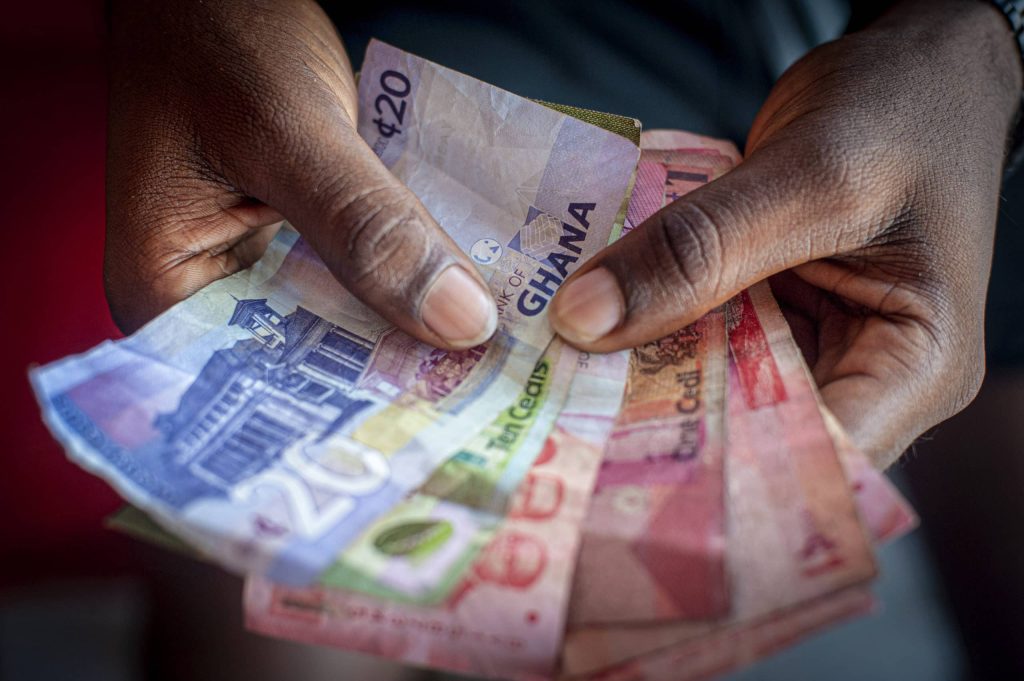
Conversely, Bawumia and the NPP have sought to attribute the ongoing economic challenges, including the rapid depreciation of the cedi, to external factors such as the COVID-19 pandemic, the repercussions of the Russian invasion of Ukraine, and escalating global interest rates.
The Bawumia campaign has also attempted to distance their candidate from the poor economic performance of the Akufo-Addo administration by arguing that, as Vice President, he was not the primary decision-maker and that his role as head of the economic management team did not afford him the same level of authority as the Finance Minister. If elected, Bawumia has promised voters a new economic direction, including cancelling certain unpopular taxes.
To divert voter attention away from the economy, the NPP has hammered on fulfilling the 2016 campaign promise of universal ‘Free Senior High School’ (FSHS) education, presenting it as a transformative achievement that solidifies its credibility. Furthermore, the NPP has drawn attention to numerous ongoing infrastructure projects, particularly in the road sector and new healthcare facilities under the ‘Agenda 111 program, as evidence of their governance achievements.
Gold and ‘Galamsey’
In addition to economic issues, other significant topics have garnered attention during the election campaign, particularly illegal artisanal gold mining, commonly called ‘galamsey.’
Ghanaians have vehemently voiced their concerns over the severe environmental degradation caused by unlicensed small-scale mining, a deeply rooted challenge that continues to scar the landscape. Vast areas of land are now crisscrossed with pockmarked pits, while major rivers have fallen victim to pollution, suffering from the toxic aftermath of illegal mining activities.
Despite the tireless efforts of various administrations to combat the rise of galamsey, the proliferation of unauthorised mining sites persists unabated. This ongoing crisis can be attributed to a convergence of factors, including soaring inflation, rampant youth unemployment, and a significant cost of living, all exacerbated by an international spike in gold prices.
Over 1.3 million young individuals aged between 15 and 35 found themselves unemployed as of September of last year, adding urgency to the debate surrounding illegal mining and its far-reaching consequences for both the environment and the community.
What to Expect
Elections in Ghana are highly competitive, requiring candidates to secure over 50% of the votes to win outright. A run-off is held three weeks later if no candidate meets this threshold. Since 1992, there have been eight presidential elections, including two run-offs in 2000 and 2008, the latter decided by just 40,000 votes.
A recent Global Info Analytics (GIA) poll indicates that the upcoming election may not be as close as projected.
Former President John Mahama has about a 14% lead over Vice President Mahamudu Bawumia. Alarmingly, 96% of NDC voters are committed to Mahama, compared to 88% of NPP supporters for Bawumia. In the crucial Ashanti region, NPP support has fallen to 66%, well below the historical average of 74% and their target of 85%.
This decline is fueled by widespread discontent: 62% of Ghanaians believe the country is headed in the wrong direction, with an even higher figure of 87% recorded during protests over rising living costs in 2022.
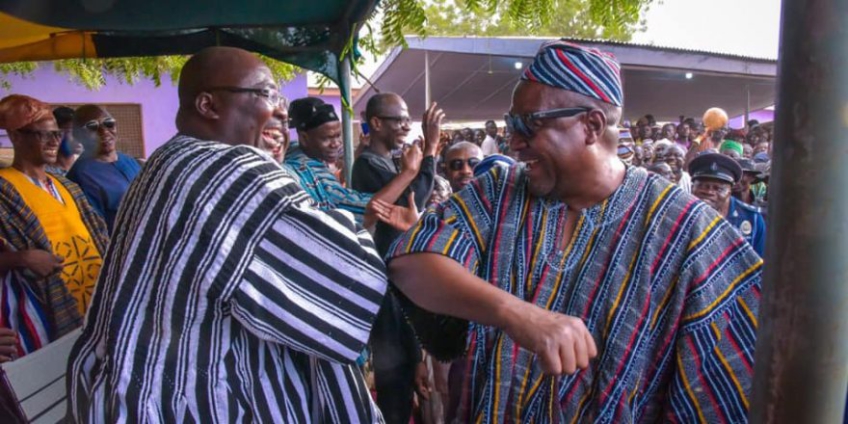
The GIA poll reveals that 49% of respondents rate the government’s performance as poor, with 46% feeling their economic situation has worsened. Time is short, as 73% of respondents are unlikely to change their minds before the election. Even in a hypothetical run-off, the NPP would struggle, with the poll showing the NDC favoured 55% to 45%.
Ghana has established itself as a beacon of democratic values in West Africa, earning a well-deserved reputation for upholding a vibrant and resilient democratic culture. This commitment to democracy has it a stable nation amidst a sub-region that has recently seen a surge in military interruptions in government.
Given the recent wave of coups across the continent, Ghana’s role as a paragon of democracy has become increasingly vital. Many of these coup attempts stem from disrupted efforts at democratisation, often undermined by authoritarian leaders clinging to power.
In such a tumultuous political landscape, a strong and democratic Ghana is a crucial model for the region, offering hope and inspiration for others striving for political stability and accountability. The need for a thriving democracy in Ghana has never been more pressing.


